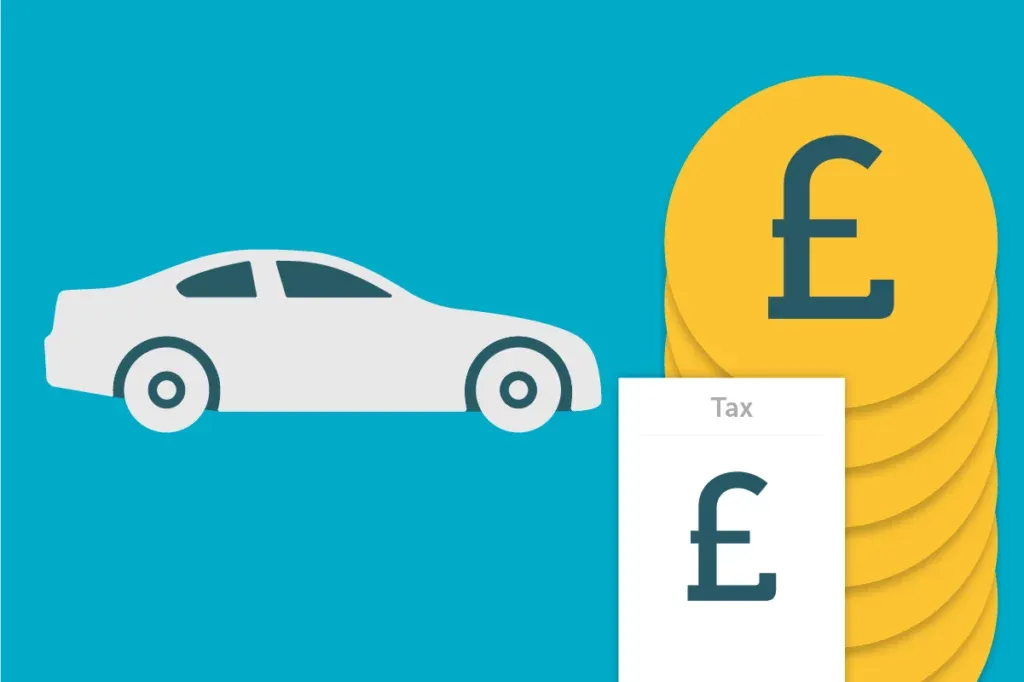One of the many expenses that a company may face, dictated by their company car policy, is providing their employees with a company car. While this can be an attractive benefit for staff, it can also come with a range of tax implications that must be considered. This article looks at what company car tax is, how it works, how much a company might expect to pay, and ways to avoid paying it.
What Is Company Car Tax?
Company car tax is a form of tax that employees may have to pay for the use of a car provided to them by an employer. It is a tax on the benefit that an employee receives from using the car for both business and personal purposes. Tax calculations are based on the value of the car, its CO2 emissions, and the employee’s income tax rate.

How Does Company Car Tax Work?
The amount of company car tax an employee pays depends on several factors, including the car’s value, CO2 emissions, and the employee’s income tax bracket. The higher the car’s value and CO2 emissions, the more tax the employee will have to pay. Once the necessary information is collected, The HM Revenue and Customs (HMRC) company car tax calculator can be used to work out the tax due.
Company Car Tax for Fleets
In addition to individual company cars, businesses that operate a fleet of vehicles will also need to consider the tax implications involved. Fleet vehicles are generally defined as vehicles owned or leased by a business and used by multiple employees.
The tax treatment of fleet vehicles can be slightly different from that of individual company cars, depending on how they are used. For example, if the majority of a fleet’s mileage is for business purposes, then there may be no company car tax liability. However, if a significant amount of the mileage is for personal use, then employees may have to pay company car tax.
How Much Tax Will I Pay for a Company Car?
As mentioned above, the amount of tax an employee must pay on a company car will depend on several factors, including the employee’s income tax bracket. As an example of how much tax might be owed, consider the following;
Based on a 20% income tax bracket, if an employee has been provided with a company car valued at £25,000 with CO2 emissions of 100 g/km, they would be liable to pay £1,000 in company car tax per year.
Electric Company Car Tax
For businesses considering providing company cars, it’s worth noting that the tax rules for electric vehicles are slightly different. The UK government introduced a new tax regime in April 2020 to encourage the uptake of electric cars. Under this EV programme, electric cars will be significantly cheaper to run than their petrol or diesel equivalents, making them an attractive option for businesses and their employees.
How Does a Company Car Affect Tax?
Providing employees with a company car can have several tax implications for both employers and employees. For employers, there may be a National Insurance contributions (NIC) liability based on the car’s CO2 emissions and its list price. Employers are also required to report the provision of company cars on their P11D form, which provides details of the expenses and benefits provided to their employees.
For employees, the company car tax they pay will also depend on the car’s list price and CO2 emissions. If an employee uses a company car for personal journeys, they may also have to pay a fuel benefit tax, which is intended to cover the cost of fuel used for personal travel.
How To Avoid Paying Company Car Tax
Businesses looking to reduce their company car tax liabilities have a few options available. One is to choose cars with lower CO2 emissions, which reduces the amount of tax employees have to pay. Another option is to consider electric company cars. Alternatively, businesses may offer salary sacrifice schemes to provide non-cash benefits to employees. These schemes can be a tax-efficient way of providing benefits, as they are not subject to income tax or National Insurance contributions. Ultimately, it’s crucial to be aware of the tax implications of providing company cars and ensure compliance with HMRC regulations.
It should also be noted that this post was not written by an accountant or tax expert, and the information presented here may change in the future. Always consult a qualified accountant when handling tax matters.
Conclusion
Businesses providing company cars need to be aware of the various tax implications involved, including National Insurance contributions, company car tax and fuel benefit tax. Businesses can opt for cars with low CO2 emissions or electric company cars to reduce tax liabilities. Alternatively, businesses can offer salary sacrifice schemes as a tax-efficient way of providing benefits. Compliance with HMRC regulations is essential to avoid unexpected tax bills while ensuring that employees receive sufficient benefits. By considering the tax implications of company cars, businesses can offer employees a valuable benefit to increase job satisfaction.
Sources:
- https://www.gov.uk/tax-company-benefits/tax-on-company-cars
- https://www.carmagazine.co.uk/electric/car-tax/
Disclaimer
This content is provided for informational purposes only and is not meant to be an endorsement or representation by FleetGO.com or any other party. This information may contain inaccuracies or typographical errors, despite our efforts to ensure accuracy. FleetGO.com accepts no responsibility or liability for any errors or omissions, and is not responsible for the contents of any linked website or any link contained in a linked website. Please refer to our full disclaimer for more details.


